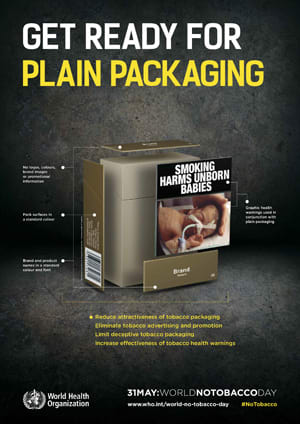
Next week, more than 1,000 global leaders in politics, health and development will meet at the Global Conference on Health Promotion in Shanghai to underscore the links between health and sustainable development, and to chart a joint way to progress on both.
The conference is timely. It takes place a year after world leaders adopted the Sustainable Development Goals at the United Nations General Assembly, and just weeks after the U.N. Framework Convention on Climate Change entered into force.
It comes at a moment when increasing evidence shows that reshaping unhealthy environments does more to promote health than campaigns that try to persuade changes using health messages alone.
And when it is abundantly clear that leadership across government ministries is key to making that reshaping happen.

The power of the law
Time and again we see that, at national and municipal levels, legislative and fiscal measures are among the most effective interventions to promote health, even though they often face stiff and well-funded resistance from powerful industries.
The use of plain packaging to reduce tobacco consumption provides a good example.
Despite efforts from the industry to block legislation, a number of countries are now following Australia’s pioneering example.
Early evidence shows that plain packaging, as part of a comprehensive approach to tobacco control, is reducing the appeal of tobacco products and increasing the effectiveness of health warnings. Australia’s smoking rates have fallen to historical lows.
It is also testament to an extraordinary level of government commitment, courage and persistence. Now, as we make our way forward in what some have called a “post-fact, post-truth” world, this commitment, courage and persistence is more critical than ever.
“Improving access to clean energy is an obvious solution. It fuels economic growth, but it also reduces millions of deaths from respiratory and cardiovascular disease associated with air pollution.”
— Dr. Margaret Chan, director general, WHOTake the fight against obesity — one of the main drivers of diabetes. Earlier this year, the World Health Organization Commission on Ending Childhood Obesity urged governments to tax sugar-sweetened beverages in order to better protect children.
In October, WHO backed up the call with concrete recommendations based on a technical report documenting the effectiveness of soda taxes.
Industry’s reaction has been swift, making two predictable arguments. First, soda taxes do not work, despite evidence to the contrary. Second, soda taxes are regressive as they punish the poor.
This argument brushes aside the fact that it is precisely the poor who suffer most greatly from diet-related diseases. If fiscal policies reduce soda consumption among the poor, this is a huge and most desirable victory for health. It is also vindication of the truth.
Keep the promise
In the same vein, governments must hold steadfast to their commitments to address climate change. At WHO, we estimate that environment-related factors contribute to as many as 12.6 million deaths each year. Air pollution alone is responsible for around half of these.
Improving access to clean energy is an obvious solution. It fuels economic growth, but it also reduces millions of deaths from respiratory and cardiovascular disease associated with air pollution.
They must also, if they are to fulfil their commitments under the Sustainable Development Goals, take steps to reach the inclusion of a target for reaching universal health coverage. This means ensuring financial risk protection, access to quality essential health care services and access to safe, effective, quality and affordable essential medicines and vaccines for all citizens.
None of this is easy. But the fact that so many high-level government representatives have accepted the invitation to the Shanghai conference encourages me that a growing number of countries are ready to take up the twin challenge
The protection of health and the promotion of well-being must be the cornerstone of any national SDG response.
Join the Devex community and access more in-depth analysis, breaking news and business advice — and a host of other services — on international development, humanitarian aid and global health.


